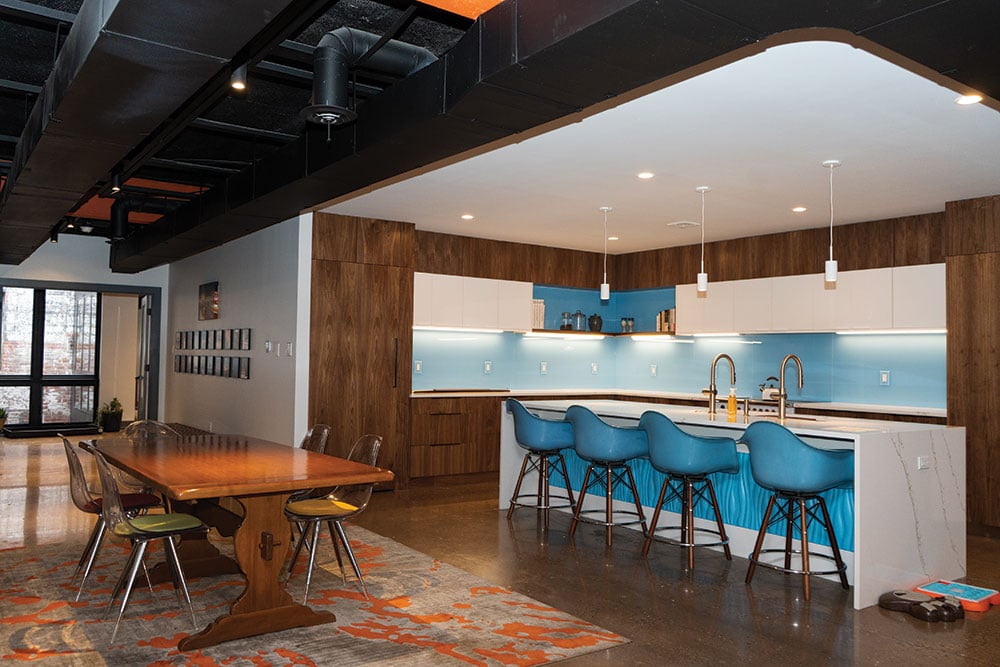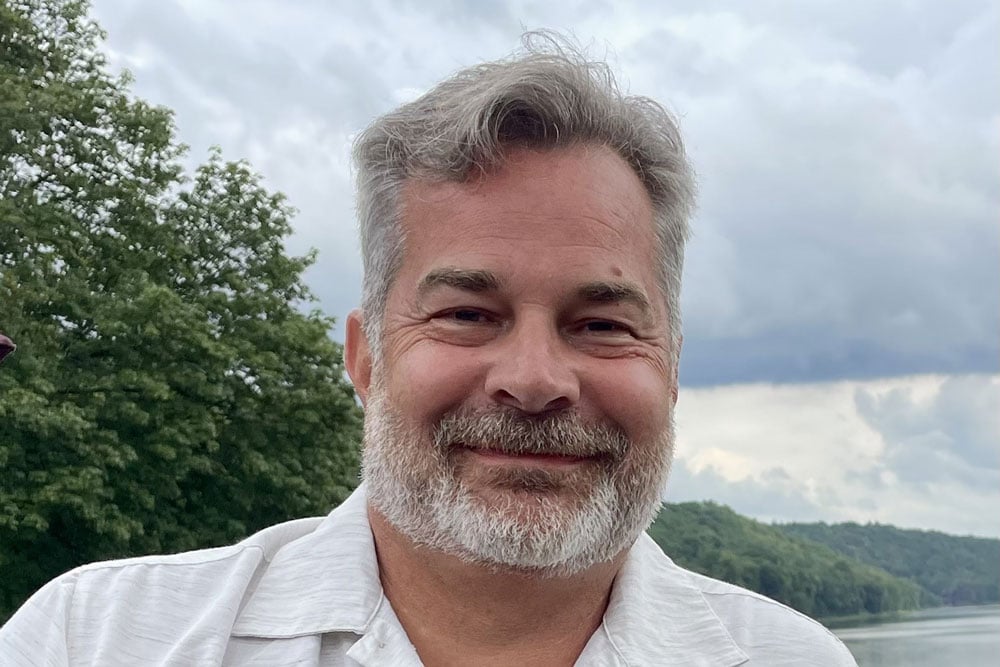What Life Will Be Like in The Rachel Carson EcoVillage
The EcoVillage on the outskirts of Chatham University’s Eden Hall campus in Richland aims to connect residents through sustainability and inclusivity.
North Hills native Kristin Karsh was perusing her local farmers market offerings when she stumbled upon a flier for the Rachel Carson EcoVillage being built on the outskirts of Chatham University’s Eden Hall campus in Richland.
Drawn in by the beautiful illustrations and the promise of adventure, Karsh, a paraprofessional in the Pine-Richland School District, decided to become a resident.
“I was looking for connection,” she says. “I was seeking a community. I was open to it. I’m kind of one of these people that I really love variety in my life, and I’m intrigued by new things.”
Focused on sustainability, inclusivity and diversity, the Rachel Carson EcoVillage, named for the famed environmentalist and Chatham alumna, is a multi-generational community made up of 35 units that invites residents to build strong relationships with neighbors while caring for the local environment. Construction begins this summer, and residents can expect their units to be built within 12 months.
“The whole idea of this EcoVillage is really built on the desire of the people to know their neighbors, to have that sense of belonging that is so hard to find today,” says architect Stefani Danes, EcoVillage project manager and adjunct professor at Carnegie Mellon University’s School of Architecture. “And that desire to play a role in the community is something that makes us happier and healthier and actually live longer.”
In 2008, the Eden Hall Foundation donated 388 acres in Richland to Chatham; today, its suburban campus, the world’s first university campus to be designed as a showcase for sustainable solutions, is home to the Falk School of Sustainability & Environment.
The idea of the village was built into the original master plans for the satellite campus. Two years ago, residents, environmental educators and ecologists began to study the natural environment around the proposed community.
Danes says the project was approached as a “part of the natural world around us.” Unlike the lawns and shrubs of a typical suburban neighborhood, the EcoVillage will be surrounded with meadow and forest.
“We accept that nature changes,” Danes says. “And so we’ve looked at how the environment will change and we will change with it over a 30-year period. So taking the longer, bigger view is really what green approach is all about.”
The village will house three types of buildings ranging from one-bedroom units (with pricing starting in the $300,000s) to larger units (priced in the $500,000s) that are able to accommodate families. A bedroom and full bathroom are located on the ground floor of all units, along with an accessible entrance. While the units don’t have a basement, they will include large porches and private yards.
All units also will have a customizable upper floor plan. Danes says this open space can be used for two additional bedrooms, a yoga studio or a home office. She adds units are still available; interested members are encouraged to attend meetings and learn about the community.
“These are open to a lot of different lifestyles and we kind of look forward to seeing what people decide to do with them,” she says.
A notable feature of the community is the common house, a building with a dining room, kitchen and sitting room for neighbors to share. The space also includes two guest rooms and two additional apartments for residents who want the convenience and amenities that come with living above the dining quarters.
Along with compact units that preserve the natural area around the village, Danes says the houses are being built with “durability” in mind and will be certified by the Passive House Institute, a non-profit group that promotes a high standard for construction, resulting in buildings that are energy efficient, comfortable and affordable.
The village is also powered by green, renewable energy resources.
“That means that they’re highly insulated. They waste much less energy than typical buildings do, and in fact our utility bills are going to be just a small fraction of what they would ordinarily be,” Danes says.
Living on campus will also give residents a chance to learn with students and participate in campus events. Residents may audit classes, access campus recreation facilities and an outdoor pool and explore six miles of winding trails.
“It’s amazing what the school is doing, and all of the ways that they have gone beyond being [a] traditional university to being really tightly connected with the whole community and engaging students and community members beyond the classroom,” Danes says.
From retirees to sustainability-minded environmental stewards, the EcoVillage has already attracted a wide swath of potential residents. Now involved in the membership and outreach planning group for the village, Karsh, 64, has been guiding potential members to become “Explorers” — and find out if the EcoVillage is the right fit for their lifestyle.
“We all have some things in common but we’re all very different as well,” she says. “So everyone’s kind of looking at it through their own lens and trying to figure out if they can make it work for them.”
A retired environmental educator from Slippery Rock, Becky Lubold is one of those prospective EcoVillage residents. Lubold says she already had been searching to live in an intentional cohousing community when she came across the EcoVillage. Right away, she knew it would fulfill her aspirations to make a positive impact on the earth while getting to know her neighbors, including sharing food, music and good times.
“I have been amazed at the range of creativity, talent, skills, backgrounds and experiences that we represent — and at the friendships that we have already developed,” she says.















